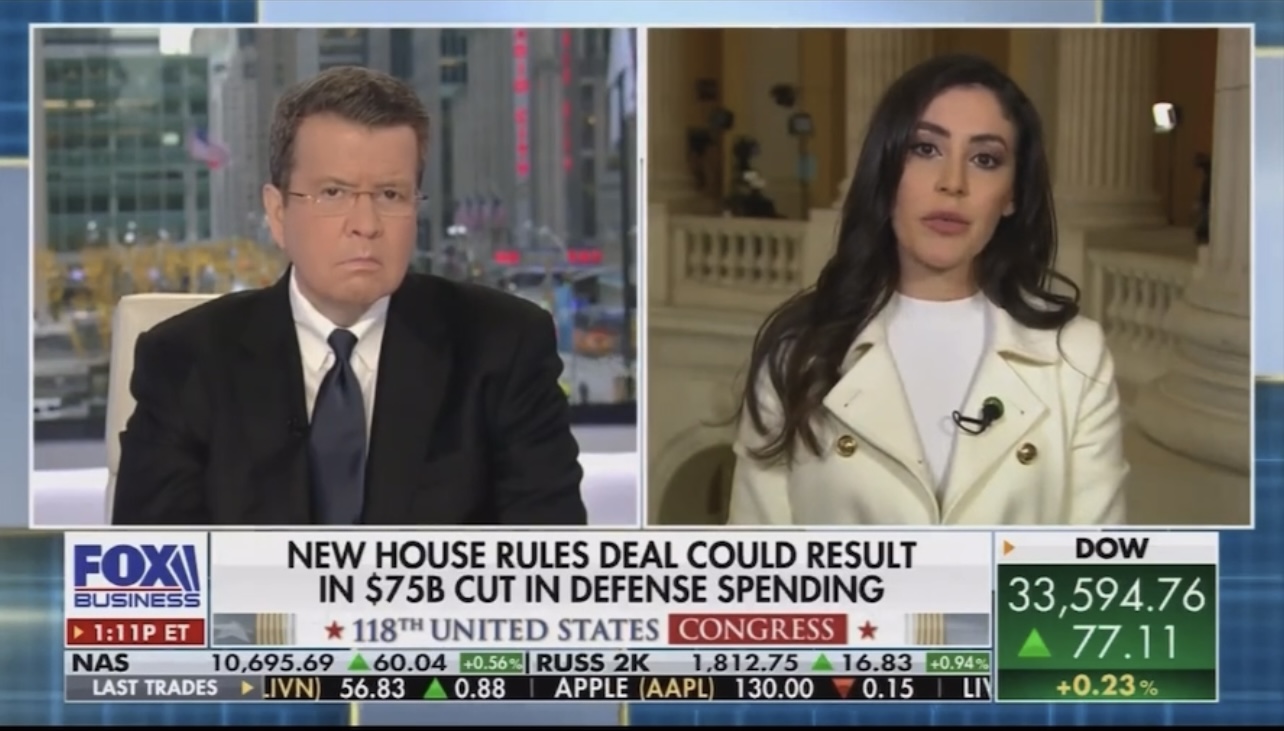Rep. Anna Paulina Luna Advances Congressional Stock Trading Ban and China Fentanyl Agreement
解锁更多功能
登录后即可使用AI智能分析、深度投研报告等高级功能

关于我们:Ginlix AI 是由真实数据驱动的 AI 投资助手,将先进的人工智能与专业金融数据库相结合,提供可验证的、基于事实的答案。请使用下方的聊天框提出任何金融问题。
This analysis is based on Rep. Anna Paulina Luna’s appearance on Fox Business’s “Kudlow” program [1], where she discussed two significant policy initiatives: her efforts to ban congressional stock trading and developments regarding a U.S.-China fentanyl precursor agreement. The interview, aired on November 13, 2025, highlights Luna’s strategic positioning on both domestic ethics reform and national security issues.
Luna has introduced a resolution seeking immediate consideration of H.R. 1908, the “End Congressional Stock Trading Act,” which would prohibit members of Congress, their spouses, and dependent children from trading or owning individual stocks, bonds, commodities, or complex investment vehicles [2][3]. The legislation requires current members to divest from covered financial instruments within 180 days and new members within 90 days [3].
The proposal demonstrates remarkable bipartisan support, with approximately 95% public backing and co-sponsorship from across the political spectrum, including Rep. Alexandria Ocasio-Cortez (D-NY) [5]. Luna stated unequivocally, “If you want a job in stock trading, go to Wall Street, not Congress” [4].
Luna’s approach has evolved from confrontation to strategic negotiation. She secured a commitment from Speaker Mike Johnson that the bill would receive committee markup following the recent government shutdown [6]. However, she maintains leverage through a filed discharge petition, threatening to use it if leadership attempts to block the legislation, stating, “If I smell any funny business, I will be bringing that forward” [4].
This dual strategy of working through traditional committee processes while maintaining the discharge petition threat demonstrates calculated political maneuvering. The timing is particularly strategic, coinciding with the government reopening that creates a legislative window for action [6].
The interview also covered a significant diplomatic breakthrough announced on November 12, 2025, by FBI Director Kash Patel regarding a “historic” agreement with China to halt fentanyl precursor flow [7]. China agreed to fully designate and list all 13 fentanyl precursors and control seven subsidiary chemicals used in production [7][8].
The agreement was credited to President Donald Trump’s direct engagement with Chinese leader Xi Jinping and includes trade concessions, with the U.S. reducing fentanyl-related tariffs by 10 percentage points and suspending increased reciprocal tariffs until November 2026 [7][9]. This broader negotiation framework also addresses rare earth minerals and agricultural exports [9].
Luna’s alliance with progressive Democrats like Ocasio-Cortez on the stock trading ban demonstrates exceptional ability to build cross-ideological coalitions on specific issues [5]. This partnership transcends traditional partisan divides, particularly given Luna’s strong MAGA credentials, highlighting how anti-corruption measures can achieve overwhelming bipartisan support when public pressure is sufficient.
Luna’s dual focus on congressional ethics and national security creates a comprehensive policy narrative that enhances her profile as a reform-oriented Republican. Her pairing of domestic anti-corruption efforts with foreign policy achievements positions her as a versatile political figure capable of addressing both institutional reform and national security challenges.
The interview’s timing maximizes media impact, occurring just one day after the FBI Director’s China announcement [7]. This strategic media push leverages favorable developments across multiple policy areas, demonstrating sophisticated political communication and agenda-setting capabilities.
While the stock trading ban has improved prospects following Johnson’s committee markup commitment [6], challenges remain in navigating committee dynamics and potential leadership resistance. The discharge petition threat provides leverage, but gathering the required signatures remains challenging. Specific committee timelines and assignments remain unclear, creating uncertainty about the legislative path forward.
Details on enforcement and compliance monitoring for both the stock trading ban and China fentanyl agreement require further clarification. Specific verification mechanisms for China’s fentanyl precursor controls were not detailed in available sources, potentially affecting the agreement’s effectiveness [7][8].
If successful, the End Congressional Stock Trading Act would represent the most significant congressional ethics reform in decades, potentially affecting hundreds of lawmakers and their families [2][3]. The China fentanyl agreement could save thousands of lives by disrupting the supply chain for the deadliest synthetic opioid [7][8].
Luna’s willingness to work across party lines on the stock trading ban while maintaining strong conservative credentials on other issues demonstrates political versatility that could benefit her long-term career prospects. Her ability to balance pressure on leadership with practical legislative needs shows sophisticated political acumen.
The End Congressional Stock Trading Act (H.R. 1908) represents a comprehensive ethics reform effort with overwhelming public support and bipartisan backing [2][3][5]. The legislation requires divestment from covered financial instruments within specified timeframes and has secured committee markup commitment following the government shutdown [3][6].
The U.S.-China fentanyl agreement marks a significant diplomatic achievement, addressing the opioid crisis through supply-side interdiction [7][8]. China’s commitment to control fentanyl precursors, combined with U.S. tariff concessions, represents a negotiated solution to a critical public health challenge [7][9].
Luna’s political strategy combines legislative negotiation with pressure tactics, maintaining the discharge petition as leverage while working through traditional committee processes [4][6]. This approach demonstrates calculated political maneuvering aimed at achieving substantive policy outcomes while building cross-party coalitions [5].
数据基于历史,不代表未来趋势;仅供投资者参考,不构成投资建议
关于我们:Ginlix AI 是由真实数据驱动的 AI 投资助手,将先进的人工智能与专业金融数据库相结合,提供可验证的、基于事实的答案。请使用下方的聊天框提出任何金融问题。